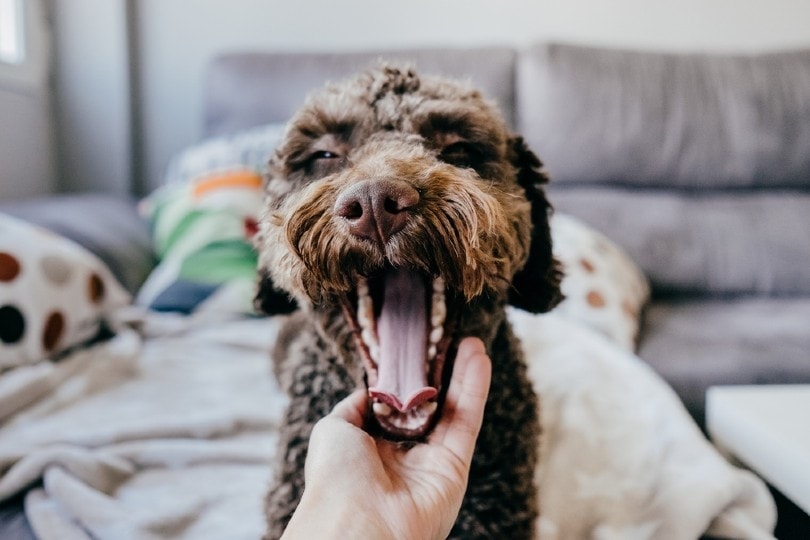Why Does My Dog Pant So Much? 7 Vet-Reviewed Reasons
Updated on
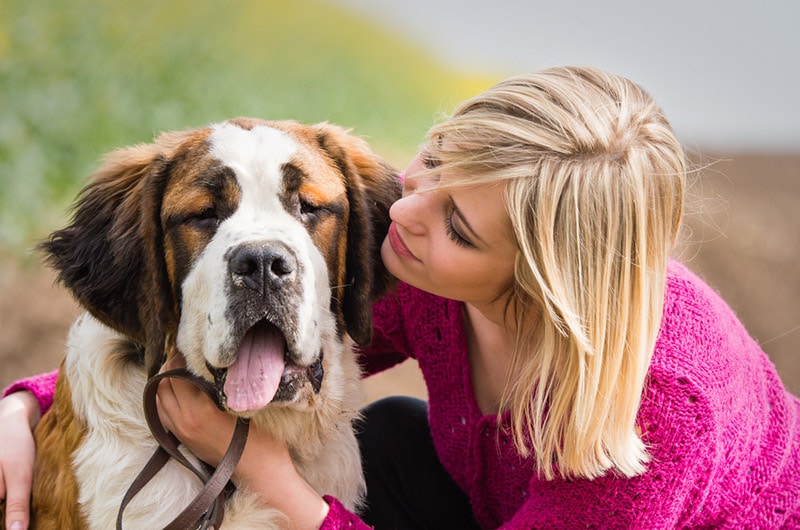
It is completely normal for dogs to pant, but excessive panting might be a cause for concern. Dogs who are panting will rapidly breathe through their mouths with their tongues out and in some cases, drool can be involved. Panting is usually seen as the epitome of a happy and playful dog after frolicking in the yard, but excessive panting might be unusual behavior for your dog. Excessive painting might be due to excessive heat, or something serious like difficulty breathing.
Here are some common reasons that your dog may be panting.
The 7 Reasons Why Your Dog Pants So Much
1. To Cool Themselves Down
The most common reason for a dog to pant is in response to heat. Dogs can’t regulate their body temperature by sweating and instead pant. Panting circulates cool air through their body and causes water to evaporate from their mouth and upper respiratory tract. After playing a game of fetch, going on a walk, running around the yard, or resting in a warm room, many dogs will begin to pant because they are feeling hot.
The whole cooling process can make your dog thirstier than usual too, which is why your dog needs access to fresh water at all times. On hot days, you should keep your dog indoors or in a cool, shady spot rather than be exposed to the harsh sun outside. Only exercise them at cool times of day, such as first thing in the morning or later in the evening. Heatstroke and dehydration are two major concerns for a dog who is struggling to cool down and keep hydrated and require urgent action and veterinary attention. Heavy, fast panting is one of the earliest and most common signs of heatstroke.
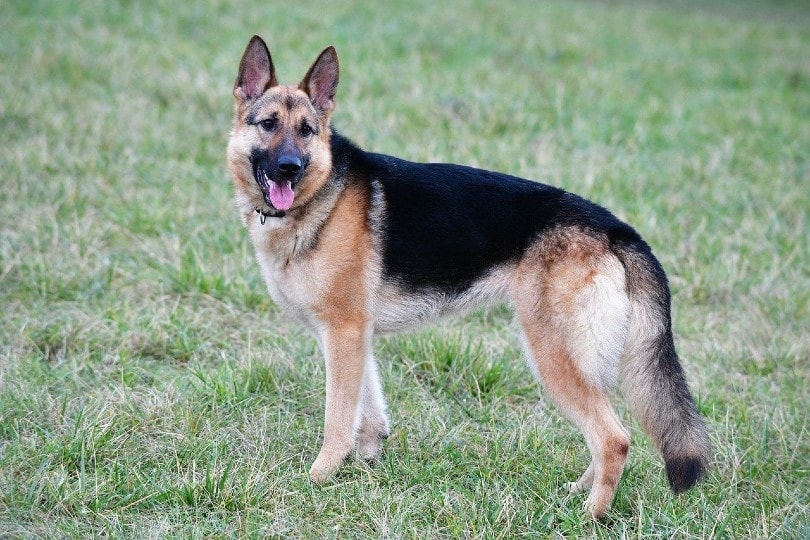
2. Medications
Certain medications like the steroid drugs prednisolone, dexamethasone, and prednisone along with opioids can cause your dog to pant excessively. This is because panting is a typical side effect of these medications, even if your dog isn’t feeling hot. Fortunately, excessive, and unexplained panting is usually a short-term side effect of these medications. If you notice that your dog’s panting is affecting their quality of life or making your dog act abnormally, it’s important to bring it up with your dog’s veterinarian.
3. Excitement
When a dog is feeling an emotion like excitement or extreme happiness, they may pant. It can almost appear as if your dog is smiling, and they will pant with shallow breaths. To determine whether your dog is panting because they are excited, monitor what’s going on in their environment and how they are otherwise. Dogs who are panting due to excitement will usually be their normal selves although they may whine and bark as well, especially in instances where they are waiting for a treat or toy to be given to them!
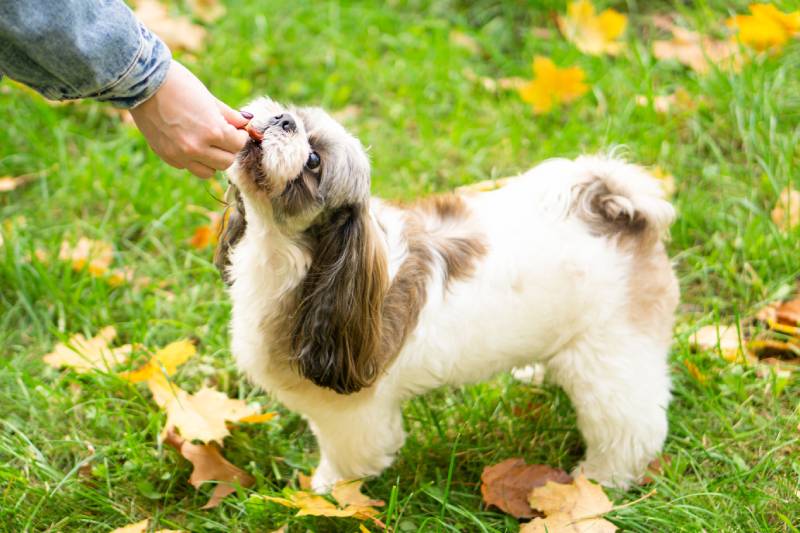
4. Stress or Anxiety
Aside from the excitement, other emotions that can cause your dog to pant include stress and anxiety. These negative emotions can make your dog feel overwhelmed and pant or whine, similar to how they would act when they are excited. However, once you understand your dogs’ responses to situations, you will be able to determine whether they are panting out of stress and anxiety, or rather from excitement.
Dogs who are feeling stressed and in pain from an injury or illness will pant more than they once did, and it can be a sign that they are feeling uncomfortable.
5. Overexertion
Dogs who are engaging in intense and prolonged exercise may become very tired and overexerted. Since exercise can make them feel warmer than usual, they will begin to pant to cool themselves down. This situation is comparable to a human who is out of breath after a run or a trip to the gym and needs some time to catch their breath afterward. If your dog is panting excessively and the panting is not slowing after a rest or your dog appears weak or wobbly, call your vet straight away. Exercising in the heat is the most common cause of potentially fatal heat stroke.
While dogs should receive regular exercise that is suitable for their breed and size, you should avoid exercising your dog to the point of extreme exhaustion where they seem unable to catch their breath for a while and never exercise any dog in hot weather.
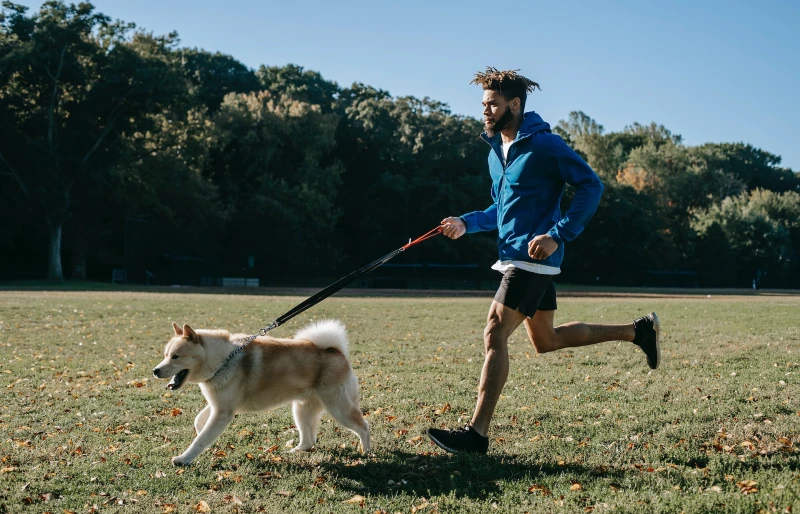
6. Difficulty Breathing
Dogs who are excessively panting may be having difficulty breathing. Other signs may include heavy fast breathing, increased effort to their breathing with their belly moving with each breath, wheezing or coughing, and their head and neck held outstretched. Difficulty breathing can be very serious depending on the cause, as it may prevent your dog from getting enough oxygen into their blood. If you notice any of these signs you must get them to the nearest vet immediately.
Although any breed can suffer from breathing difficulties for a number of different reasons, brachycephalic dog breeds with flat faces, such as French bulldogs and pugs, are particularly prone to breathing issues. They suffer from narrowing of the upper respiratory tract leading to a condition called Brachycephalic Obstructive Airway Syndrome (BOAS).
7. Obesity
While some dog owners love the look of a “well-fed” dog, it might not be the best for their overall health. Unfortunately, obesity can cause your dog to experience a range of weight-related health problems, and put a strain on their cardiovascular system, causing them to pant more excessively. This may be from obese dogs who are more unfit than others, so even light exercise may leave your overweight dog panting and tired.
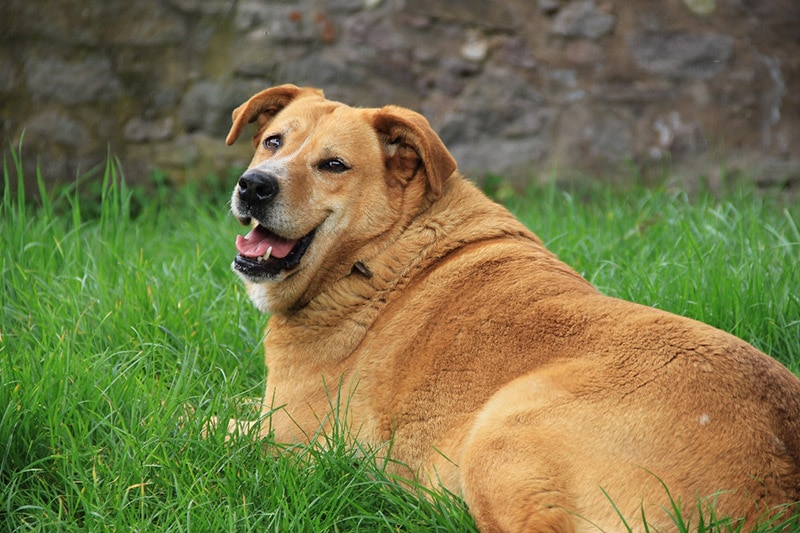
Conclusion
While it is normal for dogs to pant, excessive panting along with other abnormal and potentially worrisome behavior in dogs could indicate a potentially serious medical condition. Depending on your dog’s fitness, lifestyle, weight, and breed, some dogs will pant more intensely and longer than others. By monitoring your dog’s behavior and environment while they are panting, you may be able to get a good indication as to why they are panting so much but if you have any concerns then take them to your vet.
Featured Image Credit: Fotokostic, Shutterstock


